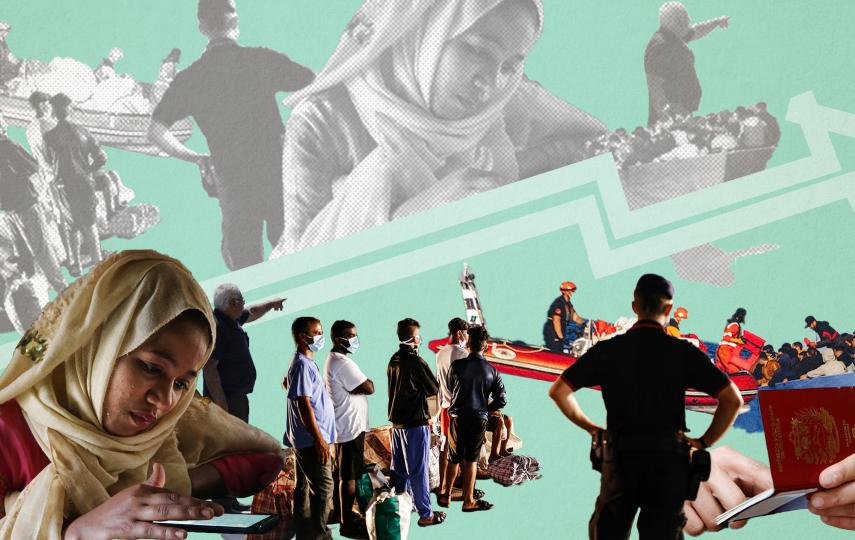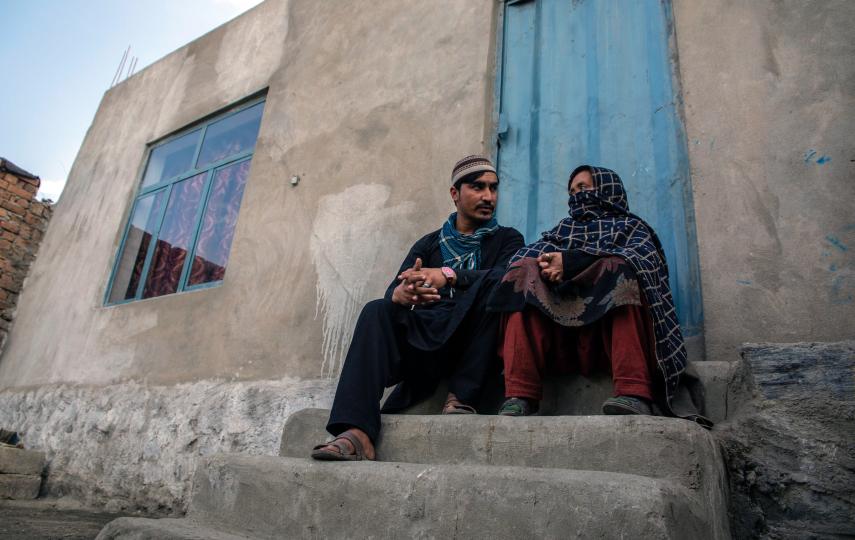COVID-19 is one of the biggest global challenges in modern history, and all nations are grappling with its impacts. But some countries have responded by shutting their doors even further to the world’s most vulnerable.
Many refugees have lost access to their livelihoods and been pushed to the brink of destitution. Some have even been forced to return to the country they fled, through deportation, or due to a lack of options in their host country. By and large, resettlement and other migration pathways have become increasingly limited during the pandemic.
At a time when refugees need solidarity from the international community, countries like Australia and the United States have reduced the number of refugees allowed to resettle during 2021.
Australia cut its resettlement programme by nearly 30 percent; in 2021, the country will allow a maximum of 13,750 refugees to enter. In the United States, the 2021 fiscal year cap has been slashed to just 15,000 people – an all-time low after welcoming more than five times as many as recently as 2016.
In the past, both countries have played a positive role in helping refugees resettle – Australia through generous support and integration programmes, and the US by traditionally welcoming the bulk of the world’s resettled refugees, at least by absolute numbers.
The pandemic is no excuse to shut the door. Countries with far fewer resources continue to host the vast majority of the world’s refugees. Wealthy nations around the globe can do more to help ease the burden.
A tradition of supporting refugees
In many ways, Australia has set the gold standard when it comes to refugee settlement – apart from its dubious reputation when it comes to immigration detention and offshore processing of asylum seekers who arrive by boat.
For decades, Australia has welcomed thousands of refugees each year, offering a safe haven and providing them with the resources to prosper – important support such as free language programmes, and access to healthcare and job services that can help newcomers integrate.
Simultaneously, Australia has undisputedly become a richer nation through refugee resettlement, with a stronger workforce, more diversity, and the creation of links with refugees’ countries of origin. Australia has become a better place thanks to contributions from its Afghan, Vietnamese, and Palestinian diaspora communities, for example.
But in cutting resettlement numbers, countries like Australia and the United States are taking a blinkered approach to refugee protection. Instead, they have opted to pursue a simplified mantra of putting their own citizens first.
By shutting refugees out, however, Australia and the US will miss out on the chance to welcome a new generation of people ready to help rebuild their economies and bounce back from this challenging time.
Rising needs
Refugee needs are greater than ever. There are an estimated 26 million refugees globally. Many have lived in exile for decades. Refugees spend more than 20 years in displacement, on average – and this number is growing, according to World Bank research.
As a result, significant numbers of people are being born into refugee situations, having known no other life but that of a refugee. Millions of refugees languish in countries like Pakistan, Iran, and Turkey; some have been outside their country for more than 40 years.
In Pakistan, for example, there are currently more than 1.4 million registered refugees from Afghanistan, and a further 500,000 unregistered refugees.
It is unrealistic and unfair for countries like Pakistan to shoulder this burden alone. It’s also untenable to suggest that refugees should simply return to their homelands, especially when countries like Afghanistan are still mired in turmoil and insecurity.
Resettlement in so-called “third countries” like Australia and the US represents only a fraction of the total refugee needs – it’s an option available only to a very narrow group of highly vulnerable people. But resettlement remains a crucial tool that can provide some individuals with access to long-term safety.
Another way: Canada’s approach
Some countries are moving in a positive direction. Canada’s immigration plan for the next three years, for example, outlines a modest increase in refugee resettlement, with target numbers rising from 23,500 this year to 25,000 in 2023. Such a commitment is significant: While borders are closing across much of the world, Canada continues to support people in desperate need of protection.
This highlights an important fact: Shutting the door to refugees is not the only option available. Instead, nations can choose openness and generosity.
Canada has recognised the important contribution that refugees make to their new countries, rather than excluding them for fear they will be a burden. Refugees are an asset, whether it be as frontline workers, or as contributors to the economic and social fabric of society.
Refugee resettlement will never be the silver bullet to solve displacement, but it does provide a vital lifeline to a small number of refugees. Expanding resettlement programmes will also be a symbol of solidarity to countries hosting millions of refugees. The act of resettling refugees acknowledges and attempts to relieve the strain on resources, infrastructure, and social cohesion.
COVID-19 undoubtedly poses grave risks to public health and economic prosperity. But these challenges should not be used as justification to squeeze resettlement programmes and step back from obligations to share responsibility.
Displacement continues despite the pandemic – look at fresh conflicts in Ethiopia, or ongoing turmoil in Afghanistan, for example.
The onus is on countries like Australia and the United States to reverse their current trajectory. Instead of cutting resettlement numbers, they should revert to their positions as global leaders. Health concerns and economic disruption need not result in closed borders and closed minds.







